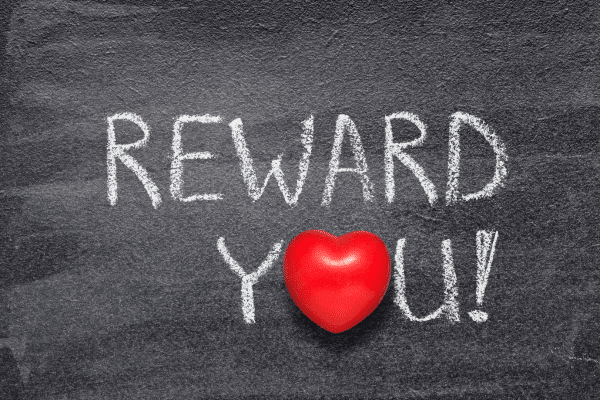Breaking a bad habit often feels like a daunting task. The very essence of habits is that they are deeply ingrained patterns of behavior, repeated so often that they become almost automatic. However, with the right strategies and a better understanding of the mechanisms behind these habits, it’s entirely possible to unlearn them. Delving into the intricacies of habits, this article offers tangible ways to tackle and replace unwanted behaviors, starting with identifying triggers.
Contents
Identify Your Triggers

Understanding the triggers that instigate a bad habit is the first significant step toward breaking it. Triggers can be external, like seeing a pack of cigarettes or hearing an ice cream truck, or they can be internal, such as a feeling of stress or boredom. By pinpointing what initiates the urge to indulge in the habit, strategies can be developed to avoid or replace those triggers, thus breaking the cycle.
Awareness is an indispensable tool in this process. It’s vital to be conscious of situations, feelings, or cues that lead to the habit in question. Journaling is one effective method to capture these insights. By noting down the circumstances around every occurrence of the bad habit, patterns start to emerge, and it becomes easier to anticipate and address the triggers.
Replace, Don’t Just Eliminate

When striving to break a bad habit, merely trying to stop the behavior often leads to failure. Instead of focusing solely on eliminating the unwanted habit, it’s more constructive to think about replacing it with a healthier alternative. For instance, someone trying to cut down on sugary snacks might consider substituting them with fruits or nuts. This way, the individual still satisfies the urge to eat something, but with a more nutritious option.
It’s also essential to be realistic and gradual in the approach. Abruptly removing a deeply ingrained habit can be jarring and can lead to quick relapses. By introducing positive behaviors incrementally and consistently, the brain starts to rewire, associating pleasure or reward with the new behavior. Over time, this can diminish the hold the bad habit has, making it easier to let go entirely.
Set Clear Goals And Commit

Establishing clear, actionable goals provides a roadmap for breaking bad habits. Without a clear direction, efforts can become scattered and ineffective. For instance, instead of saying “reduce screen time,” one might opt for “limit screen time to one hour after dinner.” Such specificity provides clarity, making it easier to gauge progress and hold oneself accountable.
Commitment plays a paramount role in this journey. Without a steadfast resolve, distractions or setbacks can derail progress. By frequently revisiting the reasons for wanting to break the habit and visualizing the benefits of success, motivation remains high. Setting reminders or even telling friends about the goal can serve as a constant nudge, reinforcing the decision to change.
Seek Social Support

The journey to break a bad habit can be arduous, but it doesn’t have to be solitary. Engaging with a supportive community can make a world of difference. Whether it’s joining a dedicated group, talking to friends or seeking professional assistance, having others on board provides both emotional support and accountability.
Humans are inherently social beings, and there’s strength in numbers. Sharing struggles, achievements, and insights with others can be a source of inspiration and motivation. Moreover, when individuals share their goals with others, a sense of obligation can arise, acting as an additional layer of commitment. This collective energy can propel an individual forward, even during challenging times.
Stay Mindful And Practice Self-compassion

Mindfulness, the act of being present and fully engaged in the current moment, can be a potent ally against bad habits. By developing a habit of mindfulness, individuals can catch themselves before succumbing to old patterns, making conscious decisions instead of automatic reactions. This heightened awareness is especially useful when confronted with triggers.
Yet, breaking habits is not a linear process, and setbacks are natural. Instead of succumbing to self-criticism during these moments, practicing self-compassion is key. Acknowledging that everyone has moments of weakness and that one setback doesn’t define the journey fosters resilience. Viewing setbacks as learning experiences rather than failures can shift the perspective and fuel the drive to move forward.
Environment Matters

The surroundings in which an individual spends time can either facilitate or hinder the process of breaking a bad habit. For someone trying to eat healthier, having a pantry full of junk food is an unnecessary temptation. Conversely, keeping a workspace organized and free from distractions can greatly enhance productivity and deter procrastination. Therefore, making proactive changes to the immediate environment can serve as a powerful catalyst for behavioral change.
On a broader scale, the places frequented and the people with whom time is spent can also influence habits. If someone is trying to reduce alcohol consumption, spending less time in bars or with heavy drinkers can make a significant difference. Actively seeking environments that support new, positive behaviors and distancing from those that don’t can greatly amplify the chances of success.
Monitor Progress And Reward Yourself

Keeping track of progress acts as both a motivator and a tool for reflection. By recording successes and challenges, patterns emerge, which can provide insights into what’s working and what needs adjustment. Using tools like apps, journals, or even simple calendars to mark achievements can give a tangible sense of accomplishment.
Recognizing and celebrating milestones, no matter how small, is crucial. By associating the breaking of a bad habit with positive reinforcement, the journey becomes more enjoyable and motivating. This doesn’t necessarily mean lavish rewards – sometimes a simple pat on the back, a favorite meal, or an evening off can be more than enough to honor the hard work.
The Bottom Line
Breaking a bad habit is a commendable endeavor, demanding perseverance, self-awareness, and a strategic approach. By identifying triggers, seeking support, being mindful, and monitoring progress, the road to success becomes clearer. Remember, it’s not about perfection, but progress. Celebrate every victory, learn from every setback, and keep pushing forward. The journey may be challenging, but the rewards of a healthier, happier life are well worth the effort.


